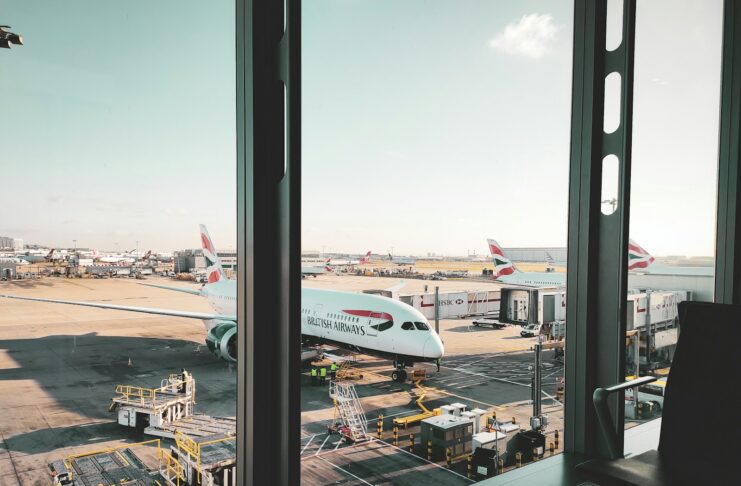British Airways has been fined more than £3 million after two baggage handlers fell from a height while unloading aircraft at Heathrow Airport, receiving serious and potentially life-threatening injuries.
The separate incidents, which occurred at Terminal 3 in August 2022 and March 2023, left one worker with a fractured spine and another with brain trauma. The Health and Safety Executive (HSE), which prosecuted the airline, said the men were “fortunate to be alive”.
Southwark Crown Court heard that British Airways had failed to properly manage the risk of falls from equipment used for loading and unloading baggage. The company pleaded guilty to two charges under the Work at Height Regulations 2005 and was ordered to pay £3.2 million, including £20,935 in legal costs.
Unsafe Gaps Created Hazardous Work Environment
The first incident took place on 25 August 2022 when a 54-year-old man was unloading baggage containers from an aircraft. He slipped and fell from a televator – a specialised belt loader used for cargo – landing 1.5 metres below. He sustained serious back and head injuries, including fractured vertebrae, and was taken to hospital for treatment.
An HSE investigation found that gaps between the televator guardrails and the aircraft fuselage varied depending on aircraft type. This created a significant fall hazard, which had been exacerbated after the televator platforms were extended at Terminal 5 without additional fall prevention measures being implemented.
Although British Airways had begun a retrofit programme to fit extendable guardrails in response to earlier HSE visits, it was only completed after the 2022 incident.
Second Fall Caused Brain Injury
On 8 March 2023, a second employee, aged 43, fell three metres from an elevator platform while unloading a flight from Seattle. He suffered a fractured jaw and bleeding on the brain. He also required hospital care and several months off work.
The HSE said the elevator’s platform had not been fully extended, creating a gap between the platform and the aircraft. Safety flaps that should have closed the space were left folded down, contributing to the fall.
The investigation concluded that, in both cases, British Airways had failed to adequately assess the risk and take reasonable steps to protect workers.
‘Fortunate To Be Alive’
Speaking after sentencing, HSE enforcement lawyer Rebecca Schwartz said the outcome could have been far worse. “Falls from height present a real risk of death or serious, life-changing injury. Both employees are fortunate to be alive today,” she said.
“The risks of working at height and the necessary control measures are well established,” Schwartz added. “In these cases, adequate guardrails would have significantly reduced the risk of harm. This was a reasonably foreseeable risk that British Airways should have been aware of and therefore it should have done more to protect its employees.”
The HSE’s case was supported by paralegal officer Melissa Wardle.
Falls From Height: A Leading Cause of Death
Falls from height are one of the most common causes of fatal and serious workplace injuries in the UK. According to the latest HSE figures, they account for around a quarter of all worker deaths annually.
The incidents at Heathrow expose the heightened risks faced by ground handling staff. Moving baggage from aircraft to terminal is a physically demanding task, often carried out under tight time pressure. It involves the use of specialised vehicles and loading equipment, which must be regularly maintained and properly operated to ensure worker safety.
Guidance Available for Employers
The HSE has issued detailed guidance on working at height safely, including specific advice for employers on how to assess risks and implement appropriate control measures such as edge protection, guardrails and proper staff training.
Further resources for those working in airside environments are available from the Civil Aviation Authority, which has produced operational guidance in collaboration with HSE. This includes advice on aircraft loading, vehicle safety and managing risks in high-pressure baggage handling areas.
Following multiple HSE inspections at Heathrow over recent years, several airlines and ground handling operators have already been required to improve their procedures around manual handling, fall prevention and equipment maintenance.
Reviewing Risk Assessments
Workplace safety observers say the British Airways case serves as a reminder that even well-resourced employers must remain vigilant in protecting employees.
Where work involves elevated platforms, vehicle-mounted equipment or exposure to potential fall risks, organisations are expected to conduct thorough risk assessments and act promptly to mitigate hazards.
Failing to do so, as the British Airways case shows, can lead not only to devastating injuries but also to significant financial and reputational damage.


